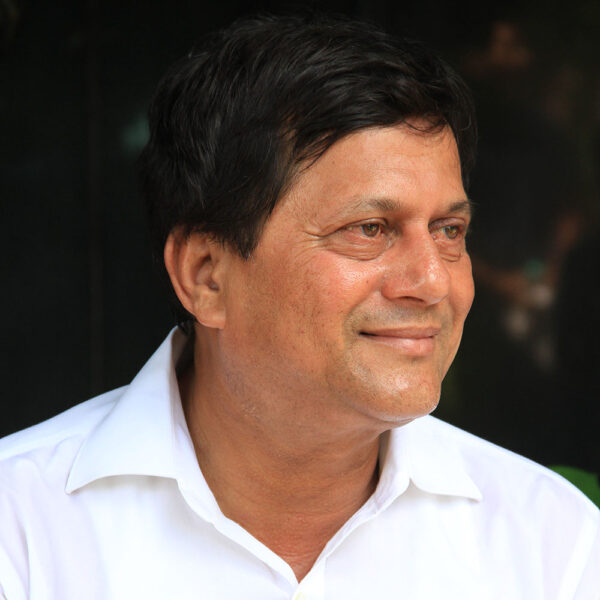Are you passionate about improving the well-being of individuals and communities in rural areas? Are you interested in bringing more accessibility to the latest technologies and resources, particularly for those living in rural areas? If so, a career in rural management may be the perfect fit for you! Rural management allows you to enhance the quality of life for individuals in rural areas by promoting their social, economic, political, and spiritual development.
An MBA in Rural Management has been gaining tremendous popularity in India, particularly because the country’s economy depends largely on agriculture, with over 60% of the population still living in rural areas. Surprisingly, over 47% of the Indian economy depends on agriculture.
However, before finalising the MBA in Rural Management course, many students have questions like What is MBA in rural management? What is the work of an MBA in Rural Management? What is the scope of Rural Management? Is it worth doing MBA in rural development? As you go through this article, you will find answers to your questions, so keep reading!
What is MBA in Rural Management?
MBA in Rural Management is a two-year postgraduate course that involves advanced topics in applying management principles to the rural sector. The course includes:
- The organisation, planning, and control of cooperatives and related organisations in the area of agriculture.
- Various developmental plans and projects are implemented directly and indirectly through non-governmental organisations (NGOs) and other cooperative associations.
- Meeting the developmental requirements of the rural areas and framing developmental strategies and policies aimed at enhancing the living conditions of the rural communities.
What Is the Work of an MBA in Rural Management?
An MBA in Rural Management is one of the most rewarding career choices for any graduate. This program familiarises students with the challenges and opportunities in the rural sector of India. The work of an MBA Rural Management professional is to interact with the villagers and farmers, understand their requirements and issues, and develop innovative solutions that enhance their current conditions.
The MBA in Rural Management course prepares you to formulate and make plans that can extensively uplift backward and impoverished rural areas. With this professional degree, graduates acquire several on-field skills which enable them to communicate with rural folks and convince them about strategies that can be helpful. They also attain a first-hand idea of handling complex situations and then produce result-oriented strategies.
What Is the Scope of Rural Management?
Nowadays, there is an enormous demand for Rural Management postgraduate degree holders. Sectors like the government’s rural development projects, non-governmental organisations, high-end rural-based research facilities, rural-based voluntary agencies, banks like NABARD, Grameen banks, development schemes and programs, agribusiness enterprises, rural cooperative sector, agricultural marketing sectors have a huge demand for MBA graduates in Rural Management.
Therefore, the scope of an MBA in Rural Management is enormous. Some of the job profiles and work of MBA Rural Management graduates are explained below:
Rural Development Officer
Rural Development Officer helps the Senior Program Manager to supervise various work under the rural development program. This work involves checking venture implementation progress, administration, and management of contracts and agreements; along with overseeing investment reports, administration, and payment transactions.
Research Officer
Research Officers direct research organisations from the preliminary stages to the final stage. They coordinate with associates and ensure that every venture and commission is as planned. They also help in assembling the required information and report their findings to advisory groups or superiors.
National Sales Development Manager
These professionals ensure that an organisation’s sales expectations across all regions within the country are reached. They also develop powerful techniques for promoting and marketing different products.
Purchase/Vendor Development Manager
These professionals are responsible for managing the purchase of goods and services for an organisation. They identify a company’s required goods and services and then negotiate the purchase of those products at an affordable price. They also keep track of all the purchases and maintain inventory and the costs associated with those purchases.
Find Effective Solutions to Enhance India’s Rural Areas with an MBA in Rural Management at KSRM
The MBA in Rural Management at the KIIT School of Rural Management (KSRM), KIIT University, is the flagship program of KSRM. The program is judiciously structured in balance with classroom and field-based experiential learning. KSRM has made ‘experiential learning’ one of the key focuses of its MBA RM curriculum. The course enables students to learn from life situations, which are more complex than what can be structured in the classroom.
Additionally, the students of KSRM can choose among the projects their partner organization offers. The broad areas of fieldwork at KSRM include agribusiness, microfinance, banking & marketing, Rural finance, climate change, disaster and natural resource management, health, livelihoods, education & corporate social responsibility, and rural entrepreneurship.
Educational Outcomes of MBA Rural Management Program at KSRM:
After completing the MBA in Rural Management course from KSRM, students will be able to:
- Apply knowledge of development and management theories and practices to offer rural social, political, and economic development and solve rural business problems.
- Foster analytical and critical thinking for evidence or data-based decision-making for rural issues.
- Develop value-based leadership capability to serve rural areas.
- Competent in leading themselves and others in achieving organisational goals, contributing effectively to a team environment in the rural context.
- Adept in planning, incubating, and nurturing innovative rural businesses and social enterprises.
Altogether, the MBA in Rural Management program holds great potential for the growth of budding professionals as huge investment has been made in this unexplored area both by the public and private sectors. So stop thinking and apply now for the MBA (RM) program!


